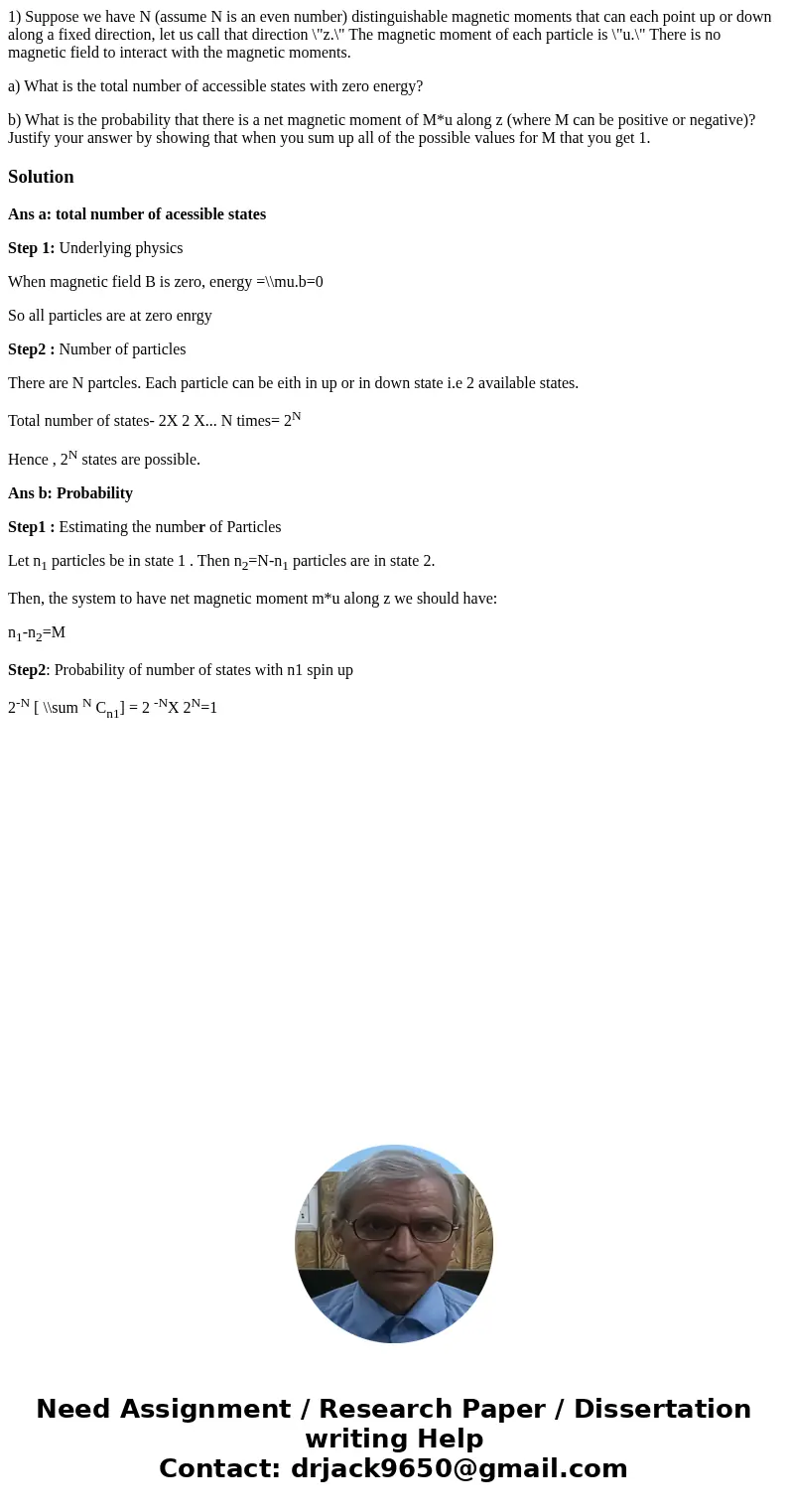1 Suppose we have N assume N is an even number distinguishab
1) Suppose we have N (assume N is an even number) distinguishable magnetic moments that can each point up or down along a fixed direction, let us call that direction \"z.\" The magnetic moment of each particle is \"u.\" There is no magnetic field to interact with the magnetic moments.
a) What is the total number of accessible states with zero energy?
b) What is the probability that there is a net magnetic moment of M*u along z (where M can be positive or negative)? Justify your answer by showing that when you sum up all of the possible values for M that you get 1.
Solution
Ans a: total number of acessible states
Step 1: Underlying physics
When magnetic field B is zero, energy =\\mu.b=0
So all particles are at zero enrgy
Step2 : Number of particles
There are N partcles. Each particle can be eith in up or in down state i.e 2 available states.
Total number of states- 2X 2 X... N times= 2N
Hence , 2N states are possible.
Ans b: Probability
Step1 : Estimating the number of Particles
Let n1 particles be in state 1 . Then n2=N-n1 particles are in state 2.
Then, the system to have net magnetic moment m*u along z we should have:
n1-n2=M
Step2: Probability of number of states with n1 spin up
2-N [ \\sum N Cn1] = 2 -NX 2N=1

 Homework Sourse
Homework Sourse